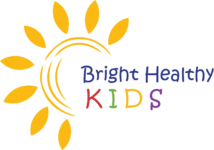Cold and flu season is here! During the late fall and winter months, we see a dramatic rise in the number of people, both children and adults, with colds or upper respiratory infections. The flu is also a winter virus, typically starting in November and peaking in mid-winter in Georgia. Colds and the flu are viral infections and cannot be treated with antibiotics, so the best treatment is prevention! (The viruses that cause vomiting and diarrhea are also more common in the winter and cannot be treated with antibiotics). How can children and adults reduce the chances of catching these diseases this fall and winter?
The number one most effective thing children and adults can do is proper handwashing. This has been repeatedly demonstrated to prevent the spread of colds, flu, and diarrhea viruses. Proper handwashing means using warm, soapy water for at least 15-20 seconds (this is the part where most people fail). Teach your children to sing the alphabet song (or “Happy Birthday to You” twice) while they are washing their hands; this will keep them washing for the proper amount of time. Hands should be washed before eating, after using the restroom, after recess, after coming home, and before touching the eyes, nose, or mouth. Teaching children to avoid touching their eyes, nose, and mouth with their fingers also cuts down on the spread of germs. Alcohol-based hand sanitizers that do not require water have been shown to be very effective at killing germs and preventing the spread of viral illnesses and should be used when soap and water are not available.
Children should be taught to cover their noses and mouths when coughing or sneezing, and they should avoid drinking after each other, especially during the winter months.
Keeping healthy overall helps the immune system to stay strong. Be sure your child eats a healthy diet (including breakfast every day), gets plenty of sleep (usually 8-10 hours a night) and gets some exercise and physical activity every day. Extra does of zinc and vitamin C and Echinacea have not been shown to prevent or treat colds and flu. However, there is some evidence that zinc and perhaps vitamin C may help the immune system to fight infections. You may want to consider giving your child a multivitamin during the winter months if you have any doubt about his or her dietary intake of these nutrients.
An annual flu shot can prevent the flu in most cases (but will not decrease the number of colds). A flu shot is recommended for high-risk children, which includes all children ages 6-59 months of age and children with chronic diseases (particularly asthma). It is also recommended that anyone living in a home with a high-risk child also receive a flu vaccine. Other children may also receive the flu vaccine if desired. October through December is the best time to get the vaccine.
Children can learn more about preventing disease at scrubclub.org and at bam.gov. Adults can learn more at the CDC website. Remember to wash those hands!
